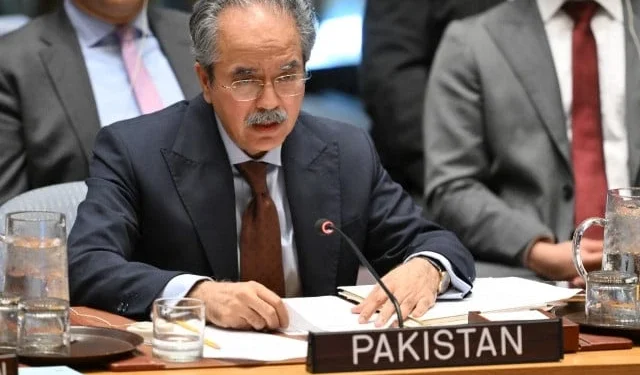New York: Pakistan has warned the UN Security Council that terrorism from Afghanistan remains the most serious threat to its national security and must be addressed urgently for peace in the region.
At a Council briefing on Afghanistan, Pakistan’s Permanent Representative to the UN, Ambassador Asim Iftikhar Ahmad, highlighted the growing challenge. He said multiple terrorist outfits, including Daesh-K, Al-Qaeda, Tehreek-e-Taliban Pakistan (TTP), the East Turkestan Islamic Movement (ETIM), the Balochistan Liberation Army (BLA), and the Majeed Brigade, continue to operate freely from Afghan sanctuaries.
The ambassador disclosed that over 60 terrorist camps are active across the border. These facilities serve as hubs for infiltration and cross-border attacks. He stressed that Pakistan holds credible evidence of collaboration among these outfits, including joint training, weapons smuggling, safe havens, and coordinated strikes targeting civilians, security forces, and development projects.
Ambassador Iftikhar also warned about the online side of terrorism from Afghanistan. He noted that nearly 70 propaganda accounts traced to Afghan IP addresses are being run by extremist groups. He urged global cooperation with social media platforms to curb these networks.
Pakistan and China, he informed, had jointly requested the UN’s 1267 Sanctions Committee to list the BLA and Majeed Brigade as global terrorist groups. He said Pakistan expects swift action on the proposal.
Focusing on the TTP, the envoy described it as the largest terrorist group based in Afghanistan, with an estimated strength of 6,000 fighters. He revealed that Pakistan had recently foiled several infiltration attempts and seized advanced military-grade weapons left behind by foreign forces after their withdrawal.
“These operations come at a heavy cost,” he added, recalling that 12 Pakistani soldiers were martyred this month alone while defending the borders.
The ambassador also drew attention to Afghanistan’s worsening economic and humanitarian situation. He pointed out that the UN’s 2025 Humanitarian Needs and Response Plan has received only 27 percent of the required funding.
He reminded the Council that Pakistan has hosted millions of Afghan refugees for more than four decades, often with little international support, and called for fairer burden-sharing by the global community.
While acknowledging that Afghanistan is no longer in a state of civil war for the first time in 40 years, Ambassador Iftikhar cautioned that the overall security situation remains “deeply worrying.” He stressed that sustained international engagement, not isolation, is the only path to durable peace.

